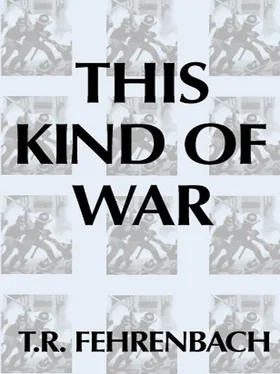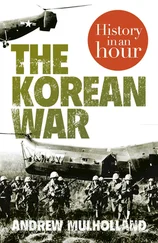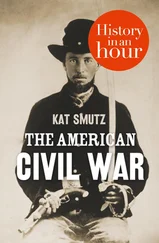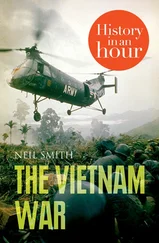They didn't have any of those things because the American Embassy didn't want them to have them. KMAG was not under the United States Army, or even responsible to the aloof and powerful satrap in Tokyo, MacArthur. Because the United States was determined to show the world that its intentions in Korea were nonaggressive, KMAG was under the State Department.
Most KMAG officers recognized this policy was nonaggressive. But as they told their Korean colleagues, who asked plaintively about guns and jets, "You can't fight city hall."
Ambassador John J. Muccio had been instructed to take no chances of the South Koreans attacking the Communists to the north. An attack would certainly convince the Soviets that America was not really bent on co-existence.
Ambassador Muccio had taken none, though his First Secretary, Harold Noble, had announced, "The ROK's can not only stop an attack but move north and capture the Communist capital in two weeks."
Whether they could or not, such reassurance was good for ROK morale.
Lynn Roberts had told Time that while the troops were excellent, the Korean officers' corps was not so hot. After all, in only eleven months staffs and commanders could not be made and trained, starting from scratch. Lynn Roberts, a professional soldier, also knew that soldiers are only as good as their officers make them. But that kind of attitude sounded un-American and was not popular in Washington, and there was no point in playing it up.
Not knowing the kind of tough, doctrinaire, disciplined armies that were being built in Asia by the Communists from Vietnam to Manchuria, KMAG and Ambassador Muccio really did not expect the ROK's to have to fight.
Now, sailing home on Saturday night, 24 June 1950, Lynn Roberts' sense of timing, at least, was perfect.
As the music started up in Seoul, in Kokura, Japan, Major General William Frishe Dean was guest of honor at a 24th Division Headquarters costume party. Which was one way for infantrymen to try to forget Secretary of Defense Louis Johnson and his fat-cutting, the supercarrier, the Strategic Air Command, and the nagging feeling that in the Atomic Age footsloggers might be obsolete.
Bill Dean came as a. Korean yangban , one of the aristocratic class who did no work, with a black stovepipe hat perched on his close-cropped head, and a long, flapping robe covered his two-hundred-pound, six-foot frame. The 24th Division Staff thought he was hilarious.
Bill Dean remarked to his wife, who also came dressed as a Korean—they had both been in the Occupation Forces—that he felt a bit ridiculous. Besides, as the evening wore on, the hard hat hurt.
It was Sunday morning in Seoul now, and the embassy bars were closing. Only a few dreaming—or drunken—young people still lingered in the KMAG Officers' Open Mess. It was almost dawn, and even the private parties were dying.
Any young officer who had not made out by now never would.
And the storm that had hovered over the high peaks of Bukhan Mountain north of the city broke. The rain sheeted down, true monsoon, and it was good to sleep by. People woke, smiled in the dawn's freshness, and returned to sleep. Workers, passing out of the city through Namdai Mun, the South Gate, laughed and sang as they crossed the bridge over the Han. Below them the gray shapes of massive junks and the thin shadows of motor launches lay quietly on the rain-speckled dark water.
White-clad farmers smiled as they scooped up chamber pots outside the surrounding villages' doors, and filled their reeking honey buckets. Life was hard, but again the people would be able to buy rice.
The million and a half people of Seoul did not expect the future to be good. The expected to survive.
And miles to the north, beyond where the roads the Americans had named Long Russia and Short Russia ended, beyond the religious missions on the parallel at Kaesong, where the Methodist missionaries, reassured by Ambassador Muccio, still slept, far to the east of Seoul in a town called Hwach'on, Senior Colonel Lee Hak Ku looked once again at his watch.
He looked up, met the eyes of the booted and blue-breeched officers standing about him in the Operations Post. They were all young, and hard, and most of their adult lives had been spent at war, with the Chinese, with the Soviets. They had fought Japanese; they had fought Nationalists. Now they would fight the running dogs of the American Imperialists, or whoever else got in their way.
All around, men in mustard-colored cotton uniforms were moving in the wet, predawn murkiness. Covers were coming off stubby howitzer muzzles; diesel tank engines shuddered into raucous life. The monsoon was turning into drizzle now along the dark hills that framed the demarcation zone.
The varihued green paddies glistened with water, but the roads were hard and firm. The big long-gunned tanks began to move.
Back along the valley, where two divisions awaited the order to slash southward, officers raised their right arms. Section chiefs filled their lungs for shouting. The heavy guns had been trained and loaded long before.
Then men shouted, and dark cannon spat flame into the lowering sky. From the cold Eastern Sea to the foggy sandbanks of the Yellow Sea to the west, along every corridor that led to the South, night ended in a continuous flare of light and noise.
The low-slung, sleek tanks attached to the 7th Division spurted forward, throwing mud from their tracks. Designed for the bogs of Russia, they rolled easily over the hard-packed earth. Behind them poured hordes of shrieking small men in yellow-brown shirts.
"Manzai!" Senior Colonel Lee Hak Ku said, and, eyes gleaming, his staff repeated it.
It was 4:00 A.M., Sunday, 25 June 1950. The world, whether it would ever admit it or not, was at war.
| Go to Table of Contents |
2
The Crime of Marquis Ito
The twentieth century knows no greater crime .…
— Under Secretary of State Summer Wells, speaking of the Japanese occupation of Korea, 1905-1945.
THERE HAVE BEEN three Korean Wars in modern times. Each time, foreign powers have fought in Chosun, and each time the Korean people have been the losers. It is already an old pattern, and it seems one likely to continue, so long as the empires of man collide.
Korea, or Chosun, is a peninsula, 575 miles in length, averaging 150 miles across. It resembles in outline the state of Florida, though bigger. Along its eastern coast a giant chain of mountains thrusts violently upward; the west coast is flat and muddy, marked by estuaries and indentations. Inland the country is a series of hills, broad valleys, lowlands, and terraced rice paddies. Its rivers run south and west, and they are broad and deep.
It is a country of hills and valleys, and few roads. Most of Korea is, and always has been, remote from the world.
Chosun is a poor country, exporting only a little rice. But its population density is exceeded in Asia only by parts of India. For four thousand years the Koreans have tilled their misty valleys, forming a separate culture, with distinct language, literature, and ethos, within the broader frame of Sinic Civilization. Koreans are neither Chinese, Manchu, nor Japanese. They took their basic civilization from ancient China, passed it on to the then barbarous islands of Japan, but always, shrouded by their hills and bordering seas, the people of the Hermit Kingdom wished to be left in peace.
The wish is hopeless, for Korea is a buffer state.
It juts southeastward for Chinese Manchuria, and touches the maritime eastern province of Russia. One hundred and twenty miles from its southern tip lie the islands of Japan. To Japanese eyes, looking upward, Chosun is a dagger, aimed eternally at her heart.
Neither China, nor Russia, nor whatever power is dominant in the Islands of the Rising Sun, dares ignore Korea. It is, has been, and will always be either a bridge to the Asian continent, or a stepping-stone to the islands, depending on where power is ascendant.
Читать дальше












